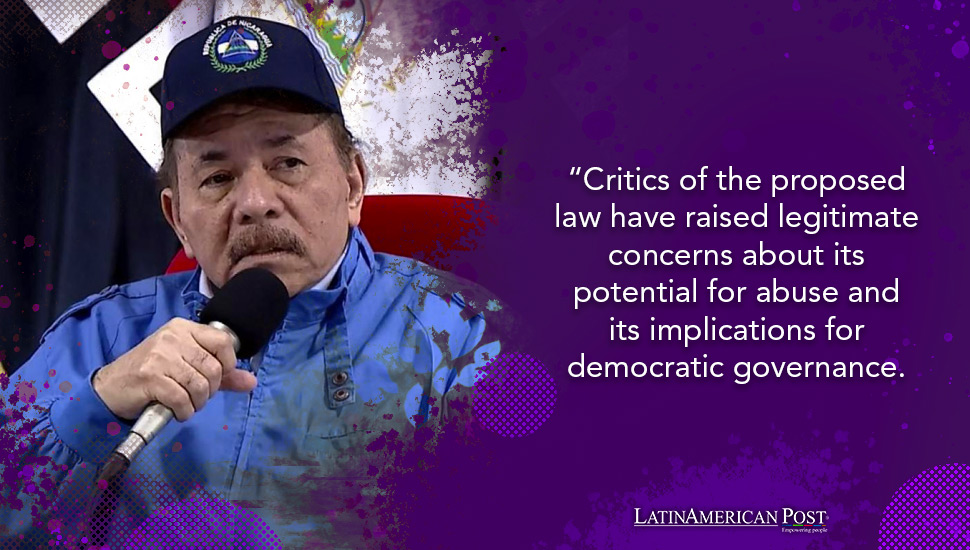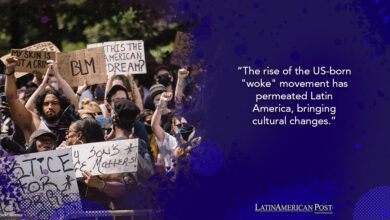Defending Privacy: Challenging Nicaragua’s Draconian Telecom Laws

Nicaraguan President Daniel Ortega’s proposed telecommunications law, which would require phone companies to divulge user information, raises profound concerns about privacy and government overreach. This move echoes broader trends across Latin America, highlighting the delicate balance between security and civil liberties in an increasingly digital age.
Privacy Erosion in Latin America
In recent years, Latin America has witnessed a growing trend towards expanded government surveillance and encroachments on privacy in the name of national security. From Mexico to Argentina, governments have enacted legislation granting authorities sweeping powers to monitor communications, track individuals, and suppress dissent. However, Nicaragua’s proposed telecommunications law represents a particularly egregious assault on privacy rights, threatening to usher in an era of unchecked state surveillance and control.
At the heart of President Ortega’s initiative is the requirement that telecommunications companies provide user information to government authorities upon request. Under the guise of updating outdated legislation and promoting connectivity, the proposed law grants the state unprecedented powers, enabling it to monitor and regulate all telecommunications in Nicaragua. This alarming expansion of state surveillance undermines individual privacy rights and poses significant risks to freedom of expression and association.
The proposed law’s provisions extend far beyond mere data collection, encompassing intrusive measures such as mandatory inspections of telecommunications infrastructure and coercive enforcement mechanisms. By compelling telecommunications operators to comply with government directives under the threat of punitive sanctions, the law effectively undermines the private sector’s autonomy and independence while consolidating state control over communication networks.
Implications for Democracy
Critics of the proposed law have raised legitimate concerns about its potential for abuse and its implications for democratic governance. By centralizing control over telecommunications in the hands of government agencies, the law opens the door to arbitrary censorship, political repression, and violations of due process. Moreover, its broad scope and vague language leave ample room for interpretation, allowing authorities to wield unchecked power with impunity.
Nicaragua’s proposed telecommunications law has implications beyond its borders, serving as a cautionary tale for the broader Latin American region. In an era of pervasive digital surveillance and cyber threats, governments across the region must strike a delicate balance between security imperatives and respect for individual rights. While ensuring public safety is undoubtedly important, it should not come at the expense of fundamental freedoms and democratic principles.
Countries like Brazil, Mexico, and Argentina have witnessed growing public outcry over government surveillance and data privacy issues in recent years. From mass protests against intrusive surveillance programs to legal challenges against expansive surveillance laws, citizens and civil society organizations have mobilized to defend their privacy rights and push back against government overreach. Nicaragua’s proposed telecommunications law underscores the urgent need for a robust legal framework to protect privacy rights and ensure accountability in the digital age.
As Latin America grapples with modern telecommunications and digital governance complexities, policymakers must prioritize protecting privacy rights and civil liberties. Rather than succumbing to the allure of authoritarian measures in the name of security, governments must uphold democratic values and respect the rule of law. Only through a concerted effort to safeguard privacy rights and promote transparency and accountability can Latin America build a more inclusive and democratic digital future.
The struggle for privacy rights in Latin America is intertwined with broader socio-political dynamics, including the legacy of authoritarianism, economic inequality, and social unrest. In countries like Brazil and Mexico, where governments have historically wielded extensive surveillance powers, citizens increasingly demand greater transparency and accountability from their leaders. Likewise, in countries like Argentina and Chile, where recent protests have highlighted grievances over government overreach and repression, protecting privacy rights has become a central demand of civil society movements.
President Ortega’s proposed telecommunications law in Nicaragua has sparked widespread condemnation from human rights organizations and opposition groups. Critics argue that the law represents a dangerous erosion of civil liberties and a blatant attempt to suppress dissent and political opposition. They warn that the law’s vague and expansive provisions could be used to target journalists, activists, and other individuals critical of the government, further undermining Nicaragua’s fragile democracy.
The international community has also expressed concern over the proposed law, with organizations such as Human Rights Watch and Amnesty International calling on the Nicaraguan government to respect privacy rights and uphold international human rights standards. The United Nations Special Rapporteur on the right to privacy has urged the government to reconsider the law, warning that it could have far-reaching implications for freedom of expression and association in the country.
A Regional Cautionary Tale
In response to mounting pressure, President Ortega’s government has sought to justify the proposed law by framing it as necessary for national security and public safety. However, critics argue that the law’s vague language and lack of safeguards against abuse make it ripe for misuse and exploitation by the government. They point to past instances of government surveillance and repression in Nicaragua as evidence of the risks posed by unchecked state power.
Also read: Nicaragua’s Coffee Culture: Brewing Sustainability and Quality
As the debate over Nicaragua’s telecommunications law unfolds, it serves as a stark reminder of the challenges facing privacy rights in Latin America. In an era of increasing digital connectivity and technological advancement, the need to protect individual privacy has never been more urgent. Governments across the region must heed their citizens’ calls and respect the fundamental rights enshrined in their constitutions and international law. Only by upholding the principles of democracy, transparency, and accountability can Latin America ensure a future where privacy rights are safeguarded and respected for all.





